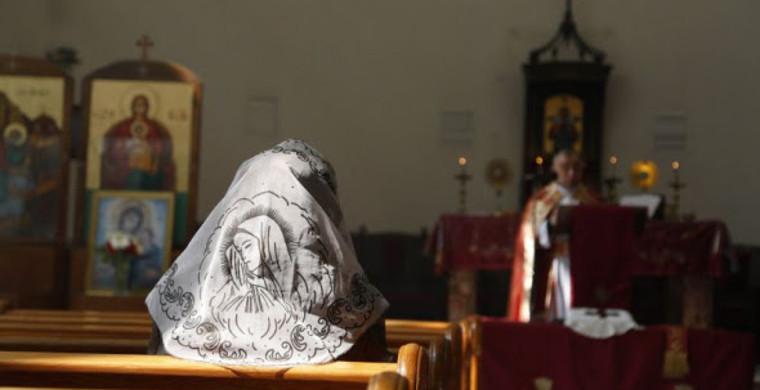Christianity Could Vanish From Middle East by 2025 if Terrorism Continues, Believers Warn
Islamic State militants have taken hundreds of Assyrian prisoners in Iraq and Syria
By Stoyan Zaimov
http://www.christianpost.com/
Aug 30, 2017
A draft document by members of the global Christian community is warning that unless the course is reversed, Christians could be driven out of their ancient homelands in the Middle East entirely in less than a decade.
Russian News Agency TASS shared details of the draft memorandum of the 3rd International Christian Forum that opened in Moscow on Monday, which detailed how over the past 10 years the Middle East's Christian population has shrunk by 80 percent.
"At the beginning of the 2000's, the number of Christians living in Iraq totals about 1.5 million, which came to about 5% of the country's population. By now, the figure has plummeted to about 100,000 people," the document states.
"The biggest Syria cities that lived through occupation by the militants have lost almost all of their Christian population."
The draft memorandum positions that Christianity "will vanish" from its homeland by the middle of the next decade if radical Islam's attacks on Christians are not stopped.
Various Middle East experts and Christian leaders have also been warning for years of the devestating effects terrorist groups, such as the Islamic State and its self-proclaimed Caliphate, are having on Christian populations.
Genocidal campaigns have resulted in the deaths and kidnappings of untold numbers of Christians and other minorities while millions have also had to flee their homes.
Todd Johnson, director of the Center for the Study of Global Christianity at Gordon-Conwell Theological Seminary in Hamilton, Massachusetts, predicted in May that by 2025 the percentage of Christians in the Mideast could go down to just over three percent. By comaprison, Christians made up 13.6 percent of the population back in 1910.
Canon Andrew White, an Anglican priest known as the "vicar of Baghdad," said earlier this year that "the time has come where it is over, no Christians will be left. Some say Christians should stay to maintain the historical presence, but it has become very difficult. The future for the community is very limited."
Some Christians have been looking to return to newly liberated cities in Iraq and Syria, but have faced great challenges, human rights advocates said.
Ashur Sargon Eskrya, president of the Assyrian Aid Society branch in Iraq, told Breitbart News earlier in August that Christians returning to the Iraqi city of Mosul are facing their "biggest and greatest challenge."
"Iraqi Christians (Assyrian, Chaldean) are indigenous peoples of the country, according to historical sources, and their future in Iraq depends of on international support and protection. Without protections, they will not be able to live in Iraq any more," Eskrya said in an email.
"It is critical time for the Christians of Iraq -- 'to be or not to be.'"
Former Rep. Frank Wolf (R-Va.), who is a distinguished senior fellow at the 21st Century Wilberforce Initiative, said that there's still an an opportunity "to save Christianity in the cradle of Christendom."
"Now is the time. We have an administration that's open to doing something," he said, referring to the administration of U.S. President Donald Trump.
"There's a willingness and desire on the part of the Christians to stay. I think given protection and coordination with housing and infrastructure, they will return," Wolf added.
Martha Hudson, an advocate for minority groups in Iraq who traveled with the congressman to Iraq, said that it is "now or never" for the Christian population there.
"We are at the tipping point and if we do nothing, we will lose Christianity in the cradle of Christianity. As Christians, this is our homeland and we must do everything to save it," Hudson said.














